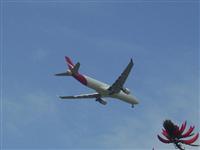 Want to Work in Tourism?
Want to Work in Tourism?
Tourism has become a major recreation pursuit, and commercial industry world wide. It is so significant today that some regions (even some countries) economies, are more heavily dependent upon tourism than anything else. The tourism industry encompasses the provision of all those services used by people when travelling away from home. The reason for travel is most obviously "a holiday"; but may also be "business".